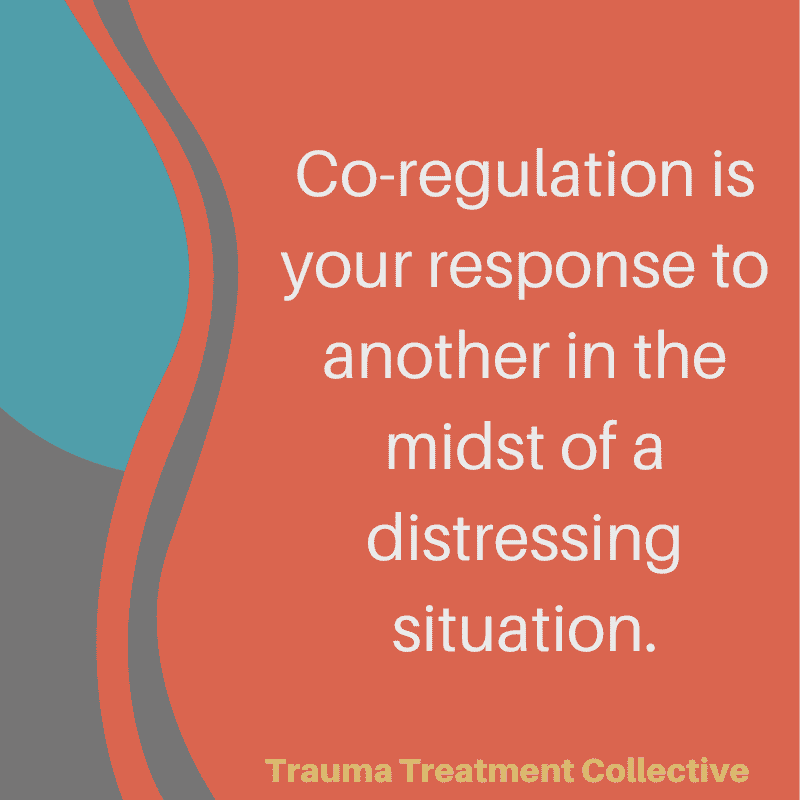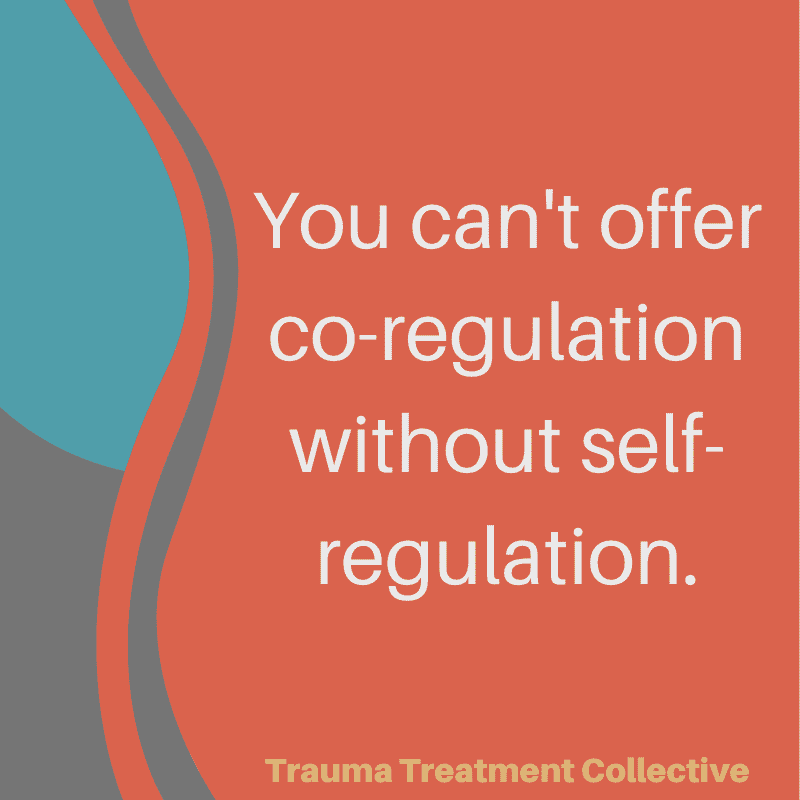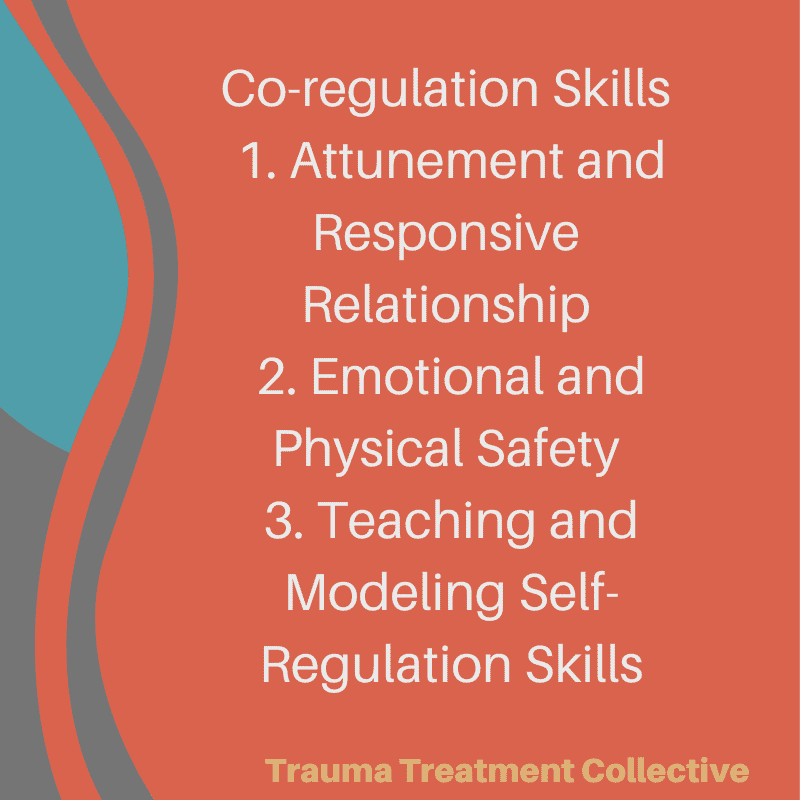
Co-regulation can be extremely helpful as trauma clients move towards healing. Co-regulation is your response to another in the midst of a distressing situation. The response can consist of a warm and calming presence and tone; validation of distress; modeling of self-regulating behaviors; and assurance that the environment supports emotional and physical safety.

A quick side (but important) note is that you can’t offer authentic co-regulation to your clients without maintaining your own self-regulation, so a requirement of co-regulation is taking good care of yourself.

Below I will share 3 co-regulation skills you can use with your clients to help them move through the work. If you are wondering when to use these skills, check out the previous blog here.
- Attunement and Responsive Relationship
Create a safe container by tracking your clients’ emotions and needs. Also responding to a client’s needs can be helpful in co-regulation. Supportive and encouraging words can also be helpful to building a relationship with your client to help move the work forward. You may share with a client that you are glad to see them. You can also ask for the client’s preferences, such as which seat they prefer and if they would like/need water, blanket, pillow, etc. Lastly, using invitational language can soften directions and ease a client into the work. This can be helpful if a client is struggling with control.
- Emotional and Physical Safety
Remind clients throughout their work that their time with you is confidential, that you are there with them and they are not alone, and that they are in a safe space with you. Also giving people some structure and predictability to the sessions might be helpful to clients to co-regulate with you.
- Teaching and Modeling Self-Regulation Skills
Teaching and modeling self-regulation skills is vital in co-regulation and can be helpful in the overall treatment of trauma. You may have been trained to not show emotion or maybe you struggle to be vulnerable in that way in session. I encourage you to see these as opportunities to teach and model self-regulation skills for clients. I will invite clients to pause and regulate, and I will mention that I will take the opportunity to join them and take care of myself as well (hoping to model to them the importance of self-regulation).
To hear more on ways to co-regulate with your clients, check out our YouTube video on the topic here.

